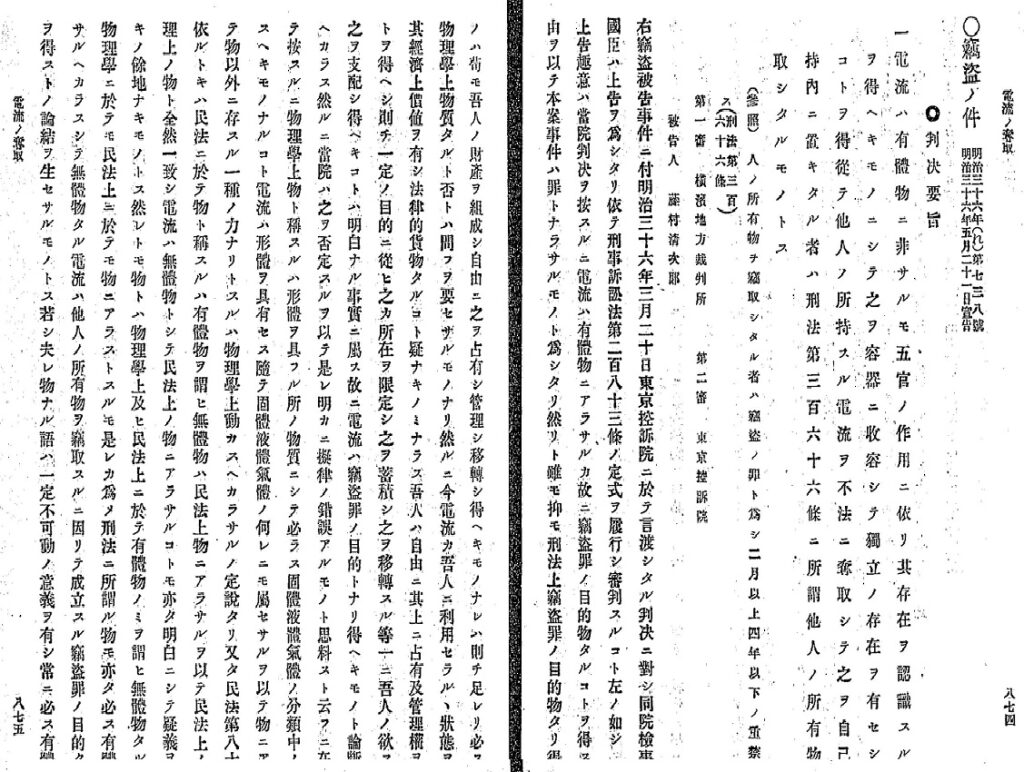As reported by numerous articles and tweets, the Japanese Tokyo High Court found guilty of cybersecurity violation a site operator who placed javascript on its page to use visitor resources for “mining”. Many critic the ruling for a variety of reasons, emphasizing the Court’s “outdated” approach.

Notably, the ruling is quite similar to the 1903 electricity theft case (see image). In that case, the Japanese court faced the question of if utilizing, without authority, others’ electricity would be a theft of “articles”. The court ruled affirmatively, emphasizing the value and ownership of electricity. So the recent High Court endorsed this Biblical principles of value of ownership and condemnation of theft. In fact, the defendant’s act was part of the efforts to validate and protect the value of a cryptocurrency against theft and misuse, Is there any reason at all for the defendant to be surprised by the ruling which was guided by the same principles?
Minehiveを有罪とした高裁判決には批判が強いようだ。確かに多くのサイトには説明なくjavascriptが書かれており、それを読み込んだ閲覧側のデバイスはscriptの指示通り作動する。ならばminehiveも同じではないか、ということだ。法律論の詳細は避けるが、実はこの事件は明治36年の「電気窃盗」事件に似たものがある(画像)。その事件で裁判所は被害者が「所有する」もの(電気)の価値を重視し、それを勝手に使うのは盗みであるとした。これは所有物の価値と盗みの禁止という旧約聖書時代からの原則であり、今回の判決もこの原則を再確認したと言ってよい。
本件で被告人が行った行為とは、仮装通貨をマイニングすること、つまり仮想通貨の価値を盗みなどから守る行為だった。被告人自らが旧約聖書時代からの原則に奉仕したわけである。にもかかわらず被告人は自分に価値のある所有物のため他人の所有物を勝手に使った(盗んだ)のだから、因果応報ということになる。技術が進んでも法と人間の本質は何千年も変わらない。